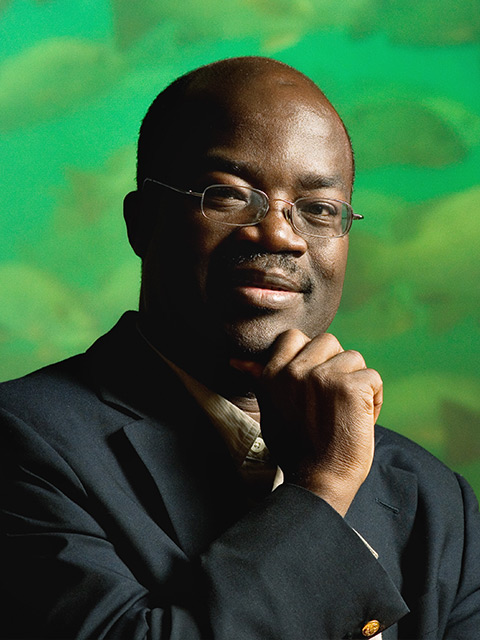 Dr. William Cheung is a Professor at the Institute for the Oceans and Fisheries, UBC and the Director (Science) of the Nippon Foundation-UBC Nereus Program. His main research areas include understanding the responses and vulnerabilities of marine ecosystems and fisheries to global change, and examining trade-offs in managing and conserving living marine resources. His works cut across multiple disciplines, from oceanography to ecology, economics and social sciences, and range from local to global scales.
Dr. William Cheung is a Professor at the Institute for the Oceans and Fisheries, UBC and the Director (Science) of the Nippon Foundation-UBC Nereus Program. His main research areas include understanding the responses and vulnerabilities of marine ecosystems and fisheries to global change, and examining trade-offs in managing and conserving living marine resources. His works cut across multiple disciplines, from oceanography to ecology, economics and social sciences, and range from local to global scales.
William has published over 150 peer-reviewed publications [Google Scholar], including papers in leading international journals. William is also actively involved in international and regional initiatives that bridge science and policy. For instance, he was a Lead Author in the Working Group II of the Fifth Assessment Report of the Intergovernmental Panel on Climate Change (IPCC), a Coordinating Lead Author of the Intergovernmental Platform on Biodiversity and Ecosystem Services (IPBES) and Global Biodiversity Outlook. He serves as member of the editorial board of Fish and Fisheries, Fisheries Oceanography and Frontiers in Marine Sciences, and as scientific advisors in a number of international and local organizations including BioDiscovery, IUCN and WWF Canada.
William obtained his BSc in Biology and M.Phil. from the University of Hong Kong. He worked for WWF Hong Kong for two years, after which he completed his Ph.D. in Resource Management and Environmental Studies at UBC. From 2009 to 2011, he was Lecturer in Marine Ecosystem Services in the School of Environmental Sciences, University of East Anglia.
Selected Publications
Pauly, D. and Cheung, W.W.L. (2017) Sound physiological knowledge and principles in modeling shrinking of fishes under climate change. Global Change Biology doi: 10.1111/gcb.13831
Cheung, W.W.L., Lam, V., Sarmiento, J., Kearney, K., Watson, R., Zeller, D. and Pauly, D. (2009) Large-scale redistribution of maximum fisheries catch potential in the global ocean under climate change. Global Change Biology doi: 10.1111/j.1365-2486.2009.01995.x.
Cheung, W.W.L., Lam, V.W.Y., Sarmiento, J.L., Kearney, K., Watson, R. and Pauly, D. (2009) Projecting global marine biodiversity impacts under climate change scenarios. Fish and Fisheries: 10: 235-251
Cheung, W.W.L., Close, C., Lam, V.W.Y., Watson, R. and Pauly, D. (2008). Application of macroecological theory to predict effects of climate change on global fisheries potential. Marine Ecology Progress Series 365: 187-197.
Cheung, W.W.L. and Sumaila, U.R. (2008). Trade-offs between conservation and socio-economic objectives in managing a tropical marine ecosystem. Ecological Economics 66: 193-210.
Cheung, W.W.L. and Pitcher, T.J. (2008). Evaluating the status of exploited taxa in the northern South China Sea using intrinsic vulnerability and spatially explicit catch-per-unit-effort data. Fisheries Research 92: 28-40.
Cheung W.W.L., Watson, R., Morato, T., Pitcher, T.J. and Pauly, D. (2007). Intrinsic vulnerability in the global fish catch. Marine Ecology Progress Series 333: 1-12.
Cheung W.W.L., Pitcher, T.J. and Pauly, D. (2005). A fuzzy logic expert system to estimate intrinsic extinction vulnerability of marine fishes to fishing. Biological Conservation 124: 97-111.
Sadovy Y. and Cheung, W.L. (2003). Near extinction of a highly fecund fish: the one that nearly got away. Fish and Fisheries 4: 86-99.


